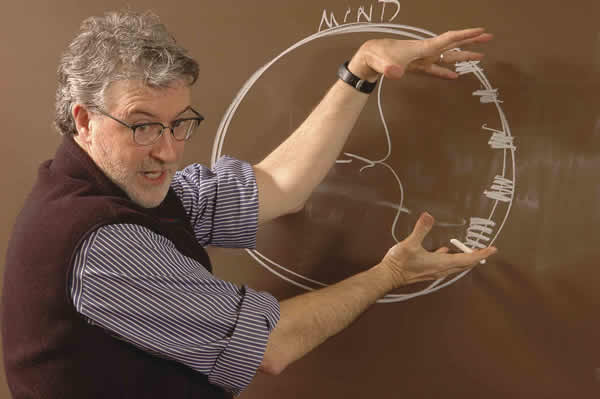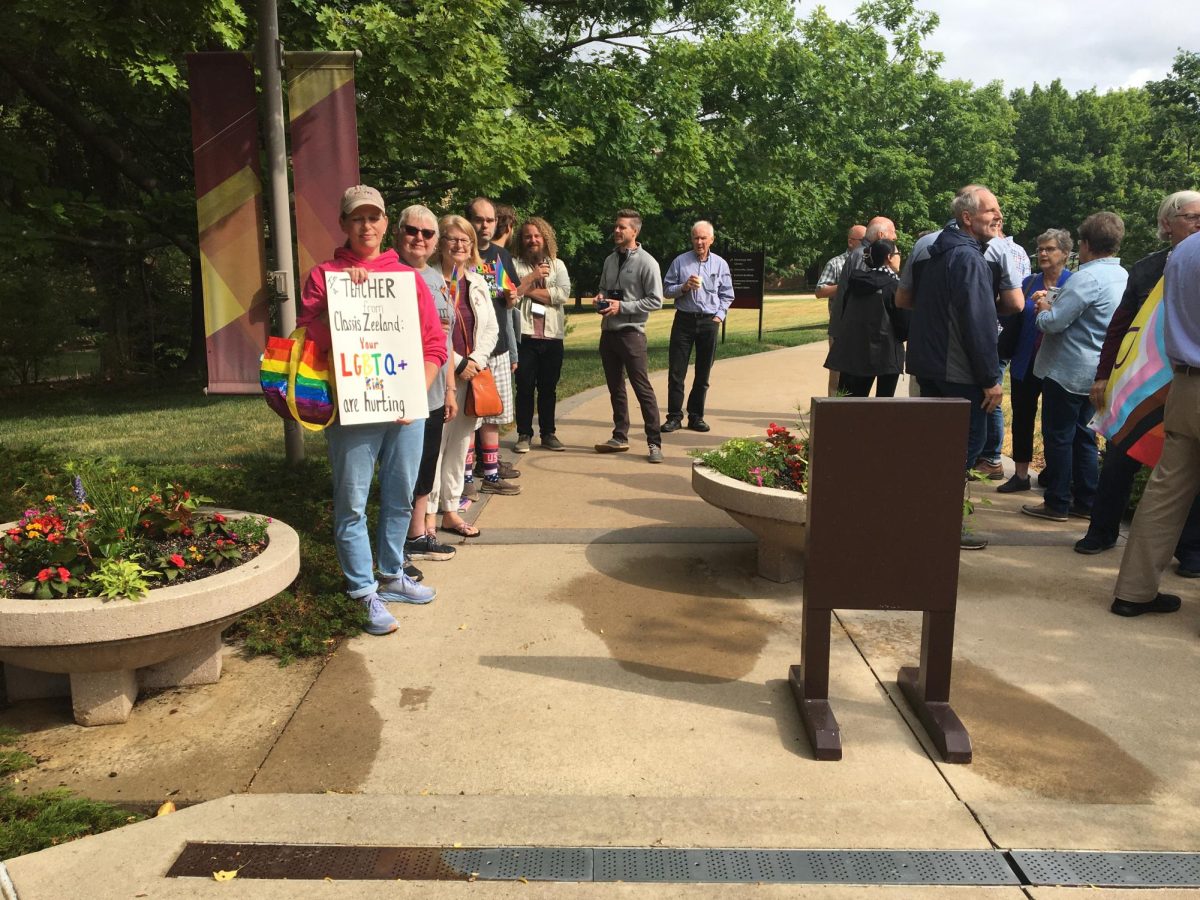Last year, philosophy professor Lee Hardy led a class in Christian ethics for inmates at Handlon Correctional Facility in Ionia County. Hardy participated in the program through Calvin Theological Seminary. Bob Woldhuis, a member of Seymour Christian Reformed Church who works at Handlon, facilitated the connection between the Seminary and Handlon.
When Hardy arrived at Handlon, no guards accompanied him into the classroom and he didn’t know what to expect. However, after the first class, he said he looked forward to continuing to teach it.
Hardy spoke of his appreciation of having the opportunity to teach individuals with such a broad range of backgrounds and such different experiences than traditional students.
“It brings ideas and materials into a different angle,” said Hardy. “[The students] listen and respond to things differently.”
Hardy noted that one of his favorite parts about teaching the class was reading the students’ papers. Given the students’ diverse social, racial and theological backgrounds, their responses often revealed a different approach to the material than Hardy expected.
Hardy’s experience teaching at Handlon was imbued with a “consistent, strong sense of joy.” He says it “reaffirmed the value” of the material he taught. For Hardy — and potentially, other instructors who have the chance to teach here — teaching at Handlon was a chance to “serve the under-served.” But it was not without challenges.
Hardy said that his students had a wide range of academic background; some had not finished high school yet, while others had bachelor’s degrees.
To remedy this, Dr. David Rylaarsdam, a professor at Calvin Theological Seminary, is heading up an effort by the seminary to give residents of Handlon the opportunity to take courses from the seminary for credit. Because seminary classes traditionally require a college degree, various committees at Calvin College are beginning to consider the possibility of offering classes to residents of Handlon for which they would receive college credit. This could help qualify students for jobs in the future. Hardy reports that several of his students hope to be counselors for others who are experiencing the same troubles that they themselves have gone through.
In fact, Calvin committees are exploring the possibility of developing an educational outreach program, which might present opportunities for Calvin students to interact with the inmates at Handlon. Perhaps one day, Calvin sports teams could compete in friendly games with Handlon residents, give choir concerts, or provide tutoring.
The hope is that in the future, programs like the one Calvin Theological Seminary runs will extend further. Although the state can’t promote religion, it can advocate for programs like the seminary’s if participants show “demonstrable improvements.” In many cases, noted Hardy, they absolutely have.







